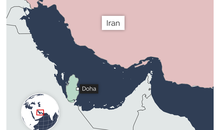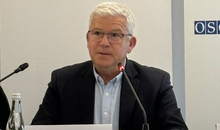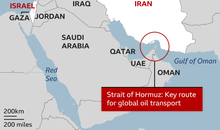
 Flash News
Flash News
Accident on the Shkodër-Muriqan axis, two injured
Iran retaliates against US, attacks US air base in Qatar with missiles
KPA upholds dismissal of prosecutor Çlirim Sino
Abuse of tenders and falsification of documents, GJKKO gives sentences to 4 former officials (NAMES)
A 70-year-old man is found dead in the Buna River
Legalization of cannabis in Albania, what American experts warned: Criminal groups will follow the practice of "fines"

Albania will legalize the cultivation of cannabis for medical use.
This was stated by Prime Minister Edi Rama on Thursday, after the publication of the results of the National Council, which showed that 61 percent of Albanians surveyed were in favor of legalizing cannabis for medical use.
Although many countries in the EU and the US have been implementing this initiative for years, two US experts have warned that the move could have repercussions on social problems and the level of criminal activity, citing the experiences of countries that have gone through the process.
"If the goal of this activity is to increase budget revenues, the American experience does not support that ," Professor Jonathan Caulkins told VOA two years ago.
“ Marijuana cultivation is not a significant source of budget revenues; in none of the American states does it exceed 1% of fiscal revenues ”.
The smaller the effect of this activity will be to support the most needy strata in the Albanian society, experts say:
" Given the level of corruption in Albania, I do not see it possible for these budget funds to improve the situation for the poorest sections of society. "The main problem in such countries is not illegal drugs, but corruption," said Hanna Kassab, author and lecturer at the University of East Carolina.
Professor Jonathan Caulkins says that in the United States where medical marijuana was legalized, negative consequences were observed for the poorest strata that engaged in cultivation illegally:
"Legalization shifts the cultivation activity from the poorest, the most uneducated, from those who can not find another job and who planted hashish illegally, to corporations, to entrepreneurs with university degrees. "Legal cultivation does not create employment opportunities for those who are most in need."
Në vendet që e kanë kaluar këtë proces, ekspertët nënvizojnë se legalizimi nuk arriti të eliminojë tregun e zi:
“Tregu i zi mund të bashkekzistojë me tregun e ligjshëm për konsum të brendshëm. Në shtetet amerikane që legalizuan prodhimin u fuqizuan edhe prodhuesit pa liçencë, pasi sektori i ligjshëm krijon lehtësira edhe për ta: furnizim të bollshëm me fara, me pajisje për mbjellje, ventilim e ngrohje, ekspertë agronomë,” thotë Jonathan Caulkins, profesor në Universitetin Carnegie Mellon.
Madje, kontrabanda e drogës do të shtohet, parashikon Profesor Caulkins, duke shtuar se të ardhurat nga kanabisi vijnë përmes kontrabandës, jo prej kultivimit:
“Kultivimi nuk paraqet problem. Marijuana është bimë: në vend që të kultivosh domate, kultivon marijuana, me ndonjë ndryshim të vogël. Marijuana është bimë me fitim të madh sepse shitet në treg të zi. Këtë treg e gjejnë trafikantët, që shesin produktin e fermerëve jashtë shteti përmes kontrabandës. Pra rrjetet kriminale do të vazhdojnë të rendin pas këtij fitimi,” thotë zoti Caulkins.
Përvoja e legalizimit të aktiviteteve të tjera të paligjshme ka treguar se rrjetet kriminale reagojnë me shpejtësi për t’iu përshtatur realitetit të ri, thotë Hanna Kassab, profesor në Unversitetin e Karolinës Lindore. Ai sjell si shembull legalizimin e prostitucionin në Amsterdam:
“Në zonën e tregtisë së seksit në Amserdam, krimi është rritur. Prostitucioni i ligjshëm ka tërhequr trafikantë të qenieve njerëzore të cilët sjellin vajza nga Rusia, nga Evropa Lindore”.
Grupet kriminale, thotë profesor Kassab, mund të ndjekin praktikën e “gjobave” duke kërcënuar e zhvatur para nga kultivues të ligjshëm.
Pavarësisht nga masat që merr Shqipëria, thonë ekspertët, kultivimi i marijuanës do të vazhdojë të ushqejë aktivitetin e paligjshëm për sa kohë që marijuana medicinale mbetet e paligjshme në vende të tjera:
"The only thing worse than a complete ban on an activity is to create a small island where this activity is legalized. This creates opportunities for lower cost production as it is legal and increases the amount for smuggling and export. " Only if it is legalized across Europe will the potential for profit from illegal trafficking be reduced, " says Professor Caulkins.
Experts stress that legalization for economic gain or the fight against crime is not an argument based on world experience to date.
Latest news




US bombings of Iran, Haxhiu: Radical groups bring the risk of escalation
2025-06-23 22:05:53
May 11, Bardhi: The DP was faced with the state and its other dark sides
2025-06-23 21:41:53



Kosovo - far from the Middle East, but close to the consequences
2025-06-23 20:24:48
War/ Iran notified Qatar before attack on US air base
2025-06-23 20:14:27
Accident on the Shkodër-Muriqan axis, two injured
2025-06-23 19:54:18
Is Albania at risk from radiation in case of nuclear attacks? Expert explains
2025-06-23 19:49:11

Another operation in Abu Dhabi, one of Dritan Gjika's associates arrested
2025-06-23 19:19:52
Iran retaliates against US, attacks US air base in Qatar with missiles
2025-06-23 19:00:47


KPA upholds dismissal of prosecutor Çlirim Sino
2025-06-23 18:26:38
Changes in life and career growth, here are the three luckiest signs of the week
2025-06-23 18:23:05


New Bureau Director
2025-06-23 17:40:36


Rutte: US attacks on Iran 'did not violate international law'
2025-06-23 16:57:06


War/ Germany takes precautions in case of retaliation from Iran
2025-06-23 16:20:28
A 70-year-old man is found dead in the Buna River
2025-06-23 16:07:35


A dead body is found in the Shkumbin River
2025-06-23 15:21:50



Accident in Prrenjas, car hits and kills pedestrian
2025-06-23 14:20:12
Salianji requests conditional release, here's when the decision will be made
2025-06-23 14:03:10

What is the Strait of Hormuz and what happens if Iran blocks it?
2025-06-23 13:28:25



The 36th attempt fails, Kosovo still without a new Parliament
2025-06-23 12:17:11
Recount/ Dogjani clashes with Ilir Rusmal: Steal votes, with what right?
2025-06-23 11:59:50

US asks China to stop Iran from closing Strait of Hormuz
2025-06-23 11:10:34

Trump talks about possible regime change in Iran after US bombings
2025-06-23 10:35:46
Presented at SPAK Majlinda Bufi
2025-06-23 10:18:30

Iranian generals threaten US with 'decisive response'
2025-06-23 09:46:00
4 more Albanians evacuated from Israel
2025-06-23 09:31:11

Fire at the waste landfill in Kukës, plumes of smoke spread towards the city
2025-06-23 08:52:12
Why have some of Tehran's key allies stayed out of the Israel-Iran conflict?
2025-06-23 08:34:20
Sterilization PPP nears closure, real cost 53% more than contract
2025-06-23 08:19:00
Gunshot wound in Shkodra, perpetrator flees
2025-06-23 08:04:44
Horoskopi, çfarë kanë rezezervuar yjet për ju sot
2025-06-23 07:50:28
Temperatures up to 36 degrees, weather forecast for today
2025-06-23 07:40:11
Morning Post/ In 2 lines: What mattered yesterday in Albania
2025-06-23 07:22:30
Krim brenda familjes në Greqi, 61-vjeçari vret prindërit e tij të moshuar
2025-06-22 21:57:48
US airstrikes/ Iran warns: The game is not over!
2025-06-22 21:29:22


The US is involved in the war, why did Trump take the risk of attacking Iran?
2025-06-22 20:28:22
Israel-Iran conflict increases global tensions: Is the Albanian economy at risk?
2025-06-22 20:02:04
The US bombed Iran/ Rama: I support Trump's sincere efforts!
2025-06-22 19:40:21
Bosnian tourist drowns in Durres
2025-06-22 19:05:48

The 10 strongest criticisms of the PACE report on the May 11 elections!
2025-06-22 18:41:21



An apartment in Yzberisht is engulfed in flames
2025-06-22 17:32:13


Rinderpest/ The number of outbreaks rises to 10, here are the affected districts
2025-06-22 16:25:12


"Trump has opened Pandora's box"
2025-06-22 15:10:04

Pope Leo XIV: Stop the tragedy of war before it becomes an irreparable abyss
2025-06-22 14:24:22
Criminal group busted in Belgium, 10 Albanians among those arrested
2025-06-22 14:00:58
Cities race for tourists, Tirana cheapest, but busiest
2025-06-22 13:35:53
Kurti supports US strike: International security needs fewer nuclear weapons
2025-06-22 13:18:54
Selling drugs in the former Bllok, 23-year-old arrested
2025-06-22 12:57:58
Berisha supports US strike on Iran: Strong call for overthrow of dictatorship
2025-06-22 12:39:35
Starmer supports US attack on Iran, calls on Tehran to return to negotiations
2025-06-22 12:20:56
Sentenced to 8 years in prison in Italy, 33-year-old Albanian arrested
2025-06-22 11:54:45
Iran condemns US attack on nuclear facilities, warns of consequences
2025-06-22 11:34:21


Albanian Railways is affected by collective staff cuts
2025-06-22 10:46:46
The US has changed the course of the conflict - how will Iran respond?
2025-06-22 10:24:26
Cannabis in drainage canals, 48-year-old arrested in Fier
2025-06-22 10:06:41
Albanians 'invade' New York, thousands march in the Red and Black parade
2025-06-22 09:44:26
Foreign exchange, the rate at which foreign currencies are sold and bought
2025-06-22 09:27:27
Is it worth buying an apartment to rent out?
2025-06-22 09:12:40
US bombs Iran, hits three Tehran nuclear sites
2025-06-22 08:53:08
